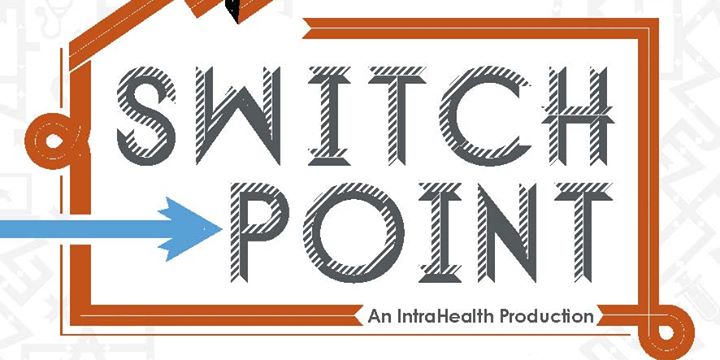Government Grants
Business Grants
Home Owner Programs
Federal Programs
About Us
USAID/Djibouti Early Childhood Education Activity
The ECE activity goal is to increase the number of children in Djibouti benefiting from high-quality, equitable, safe, and inclusive ECE services.
The activity’s objective is to improve access, quality, capacity & effectiveness of safe and inclusive ECE services.
USAID will accomplish
the activity objective through three interdependent Intermediate Results (IRs):
IR1:
Improve access to equitable, safe, and inclusive ECE services IR2:
Improve quality of ECE services IR3:
Improve enabling environment for Djibouti’s Early Childhood Development system of services Djibouti is a lower-middle-income economy with a Gross Domestic Product (GDP) equivalent to US$ 1. 85 billion in 2017 and a population estimated at approximately one million, mainly concentrated in and around Djibouti Ville where an estimated 75 percent of the population lives.
Despite a relatively high per capita income of US$1,862 in 2015, 30 percent of the population lives in poverty and 21 percent lives in extreme poverty according to the fourth (2018) round of household survey (EDAM4).
The same survey also found that 36 percent of Djibouti’s population is under 14 years old and 51 percent under 24 years old.
Djibouti hosts approximately 35,000 refugees, mostly from Ethiopia, Eritrea, Somalia, and Yemen, who reside in three major settlements as well as in urban areas.
It is anticipated that asylum cases could increase given current crisis situations unfolding in neighboring Ethiopia.
The activity’s objective is to improve access, quality, capacity & effectiveness of safe and inclusive ECE services.
USAID will accomplish
the activity objective through three interdependent Intermediate Results (IRs):
IR1:
Improve access to equitable, safe, and inclusive ECE services IR2:
Improve quality of ECE services IR3:
Improve enabling environment for Djibouti’s Early Childhood Development system of services Djibouti is a lower-middle-income economy with a Gross Domestic Product (GDP) equivalent to US$ 1. 85 billion in 2017 and a population estimated at approximately one million, mainly concentrated in and around Djibouti Ville where an estimated 75 percent of the population lives.
Despite a relatively high per capita income of US$1,862 in 2015, 30 percent of the population lives in poverty and 21 percent lives in extreme poverty according to the fourth (2018) round of household survey (EDAM4).
The same survey also found that 36 percent of Djibouti’s population is under 14 years old and 51 percent under 24 years old.
Djibouti hosts approximately 35,000 refugees, mostly from Ethiopia, Eritrea, Somalia, and Yemen, who reside in three major settlements as well as in urban areas.
It is anticipated that asylum cases could increase given current crisis situations unfolding in neighboring Ethiopia.
Agency: Agency for International Development
Office: Ethiopia USAID-Addis Ababa
Estimated Funding: $14,000,000
Office: Ethiopia USAID-Addis Ababa
Estimated Funding: $14,000,000
Who's Eligible
Relevant Nonprofit Program Categories
Obtain Full Opportunity Text:
DOL Grants Page
Additional Information of Eligibility:
Applicants need not be a current or prior WIA section 167 grantee to establish eligibility to be awarded a grant under this solicitation.
State agencies, state workforce investment boards (SWIBs), local government agencies, local workforce investment boards (LWIBs), faith-based and community-based organizations, institutions of higher learning, and other entities capable of delivering services on a statewide basis are all examples of organizations eligible to apply for WIA section 167 grants.
The provisions of 20 CFR 669.200(a), which implement WIA section 167(b) describe entities eligible to receive a grant as those that have: • An understanding of the employment challenges and barriers to employment facing eligible migrant and seasonal farmworkers, including their dependents; • A familiarity with the geographical area to be served; • A capacity to administer effectively a diversified program of workforce investment activities for eligible migrant and seasonal farmworkers; and • The capacity to work effectively as a One-Stop partner.
Full Opportunity Web Address:
http://www.doleta.gov/grants/find_grants.cfm
Contact:
Agency Email Description:
Tsegereda Gebremedhin, Grant Specialist
Agency Email:
Date Posted:
2022-07-06
Application Due Date:
Archive Date:
2022-09-14
Social Entrepreneurship
Spotlight
Building a Million Dollar Company Where Everyone Counts

Ganesh Natarajan is the Founder and Chairman of 5FWorld, a new platform for funding and developing start-ups, social enterprises and the skills eco-system in India. In the past two decades, he has built two of India’s high-growth software services companies – Aptech and Zensar – almost from scratch to global success.

